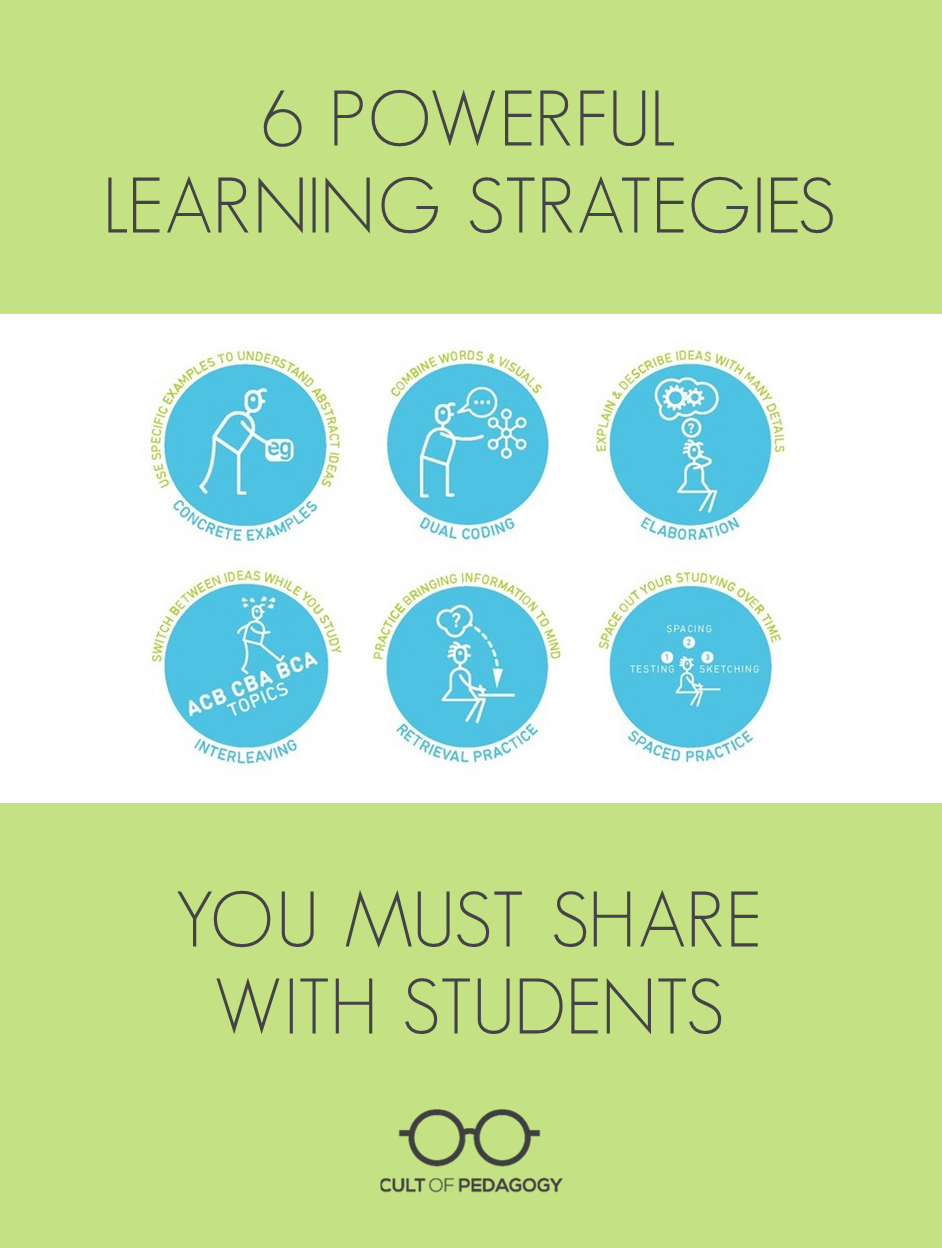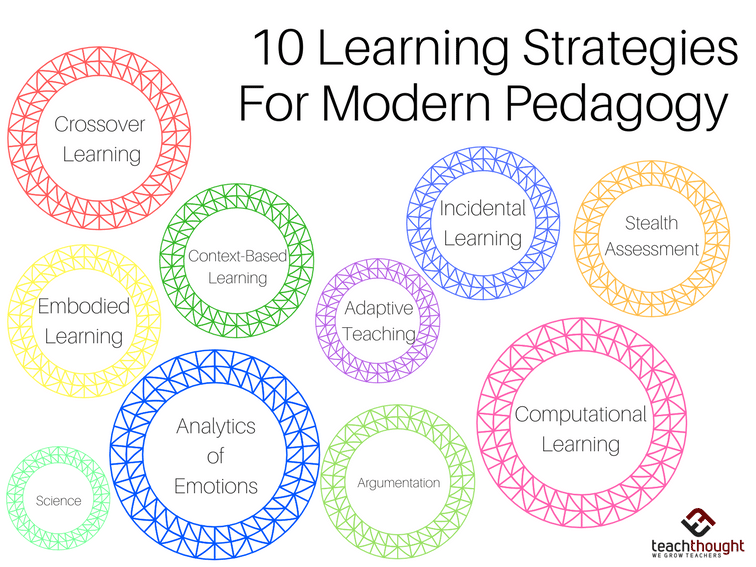Effective Learning Strategies for Academic Success
Learning is a dynamic process that goes beyond just memorizing information. In today’s fast-paced world, it’s crucial to adopt the right learning strategies to absorb, retain, and apply knowledge effectively. Whether you’re preparing for an exam or trying to grasp a complex subject, implementing the right strategies can make a significant difference in your performance. In this article, we will explore some effective learning strategies to enhance your academic success.

1. Active Learning
Active learning is a powerful strategy where learners engage with the material through activities rather than passively receiving information. This method helps enhance retention and understanding, making it a critical approach for academic success.
How Active Learning Works:
-
Summarize What You Read: After going through a chapter, summarize the key points in your own words.
-
Discuss with Peers: Explaining concepts to others helps deepen your understanding.
-
Ask Questions: Proactively question the material and seek answers to clarify your doubts.
Active learning encourages you to actively engage with the content, making learning more meaningful and long-lasting.
2. Spaced Repetition
Spaced repetition is a scientifically proven method that involves reviewing material at increasing intervals to combat forgetting. This technique is particularly effective when you need to retain information for the long term.
Tips for Spaced Repetition:
-
Use Flashcards: Digital tools like Anki or Quizlet are great for reviewing flashcards at intervals.
-
Review Regularly: Instead of cramming, spread your review sessions out over several days or weeks.
-
Set Reminders: Use apps to remind you to revisit material at spaced intervals.
By using spaced repetition, you ensure that the information stays fresh in your memory and becomes easier to recall when needed.
3. Visual Learning
Humans are highly visual creatures, and visual learning capitalizes on this by using images, diagrams, charts, and other visual aids to simplify complex concepts. This strategy helps in organizing information and improving memory retention.
How to Use Visual Learning:
-
Mind Maps: Create diagrams that link related concepts together.
-
Infographics: Use infographics to summarize large amounts of information.
-
Diagrams: Draw charts and graphs to visualize statistical data or processes.
Visual learning strategies help transform abstract ideas into understandable formats, improving clarity and focus.

4. The Feynman Technique
Named after the famous physicist Richard Feynman, this learning technique revolves around explaining concepts as simply as possible, as though you are teaching someone else. This helps uncover gaps in your knowledge and reinforces what you know.
How to Apply the Feynman Technique:
-
Choose a Concept: Pick a concept that you want to understand better.
-
Explain It Simply: Try to explain it in simple terms, as if teaching a child.
-
Identify Gaps: If you struggle to explain a part, it signals a gap in your understanding. Go back to your study materials to fill in these gaps.
The Feynman Technique is a powerful tool for deep learning and ensuring that you truly understand the material, not just memorize it.
5. Chunking Information
Chunking is the process of grouping large amounts of information into smaller, more manageable units. This strategy is highly effective for improving memory and making complex material easier to digest.
How to Chunk Information:
-
Group Similar Concepts: Organize related ideas or information into chunks (e.g., grouping historical events by themes).
-
Use Acronyms: Create acronyms to help remember lists or sequences of items.
-
Break Down Large Texts: Instead of reading large sections of text at once, break them into smaller paragraphs or bullet points.
Chunking helps the brain process and store information more effectively, improving recall and comprehension.
6. Interleaved Practice
Interleaved practice involves studying different subjects or topics in one session, as opposed to focusing on just one topic. This method encourages the brain to make connections between concepts and improves problem-solving skills.
How to Implement Interleaved Practice:
-
Mix Topics: Instead of studying one chapter at a time, mix up subjects within a study session.
-
Switch Between Skills: For example, alternate between solving math problems and reviewing history.
-
Vary the Material: Don’t be afraid to mix subjects you might consider unrelated.
Interleaving helps improve cognitive flexibility and strengthens your ability to apply knowledge in different contexts.
7. Elaborative Interrogation
Elaborative interrogation involves asking yourself “why” questions about the material you’re studying. By seeking explanations, you create meaningful connections in your brain, which enhances understanding and retention.
How to Use Elaborative Interrogation:
-
Ask “Why”: After reading a section, ask why the concept is important or how it relates to other topics.
-
Seek Deep Understanding: Don’t just focus on surface-level facts—explore the reasons behind those facts.
-
Make Connections: Relate the material to your prior knowledge or real-life examples.
This strategy promotes critical thinking and helps you understand the material on a deeper level.
8. Self-Testing
One of the most effective learning strategies is self-testing. This involves regularly testing yourself on the material you’ve learned, which not only helps reinforce the information but also improves your ability to recall it during exams.
Tips for Effective Self-Testing:
-
Practice Past Exams: Use previous exams to test your knowledge and familiarize yourself with the format.
-
Quiz Yourself: Create your own quizzes or use online resources like Quizlet for flashcard-based testing.
-
Track Your Progress: Keep track of your scores and focus on areas where you need improvement.
Self-testing not only boosts memory but also builds your confidence in recalling information during actual exams.

9. Goal Setting
Setting clear and achievable goals helps you stay focused and motivated. By breaking down larger objectives into smaller, more manageable tasks, you can make consistent progress toward your academic targets.
How to Set Effective Goals:
-
SMART Goals: Set goals that are Specific, Measurable, Achievable, Relevant, and Time-bound.
-
Track Progress: Regularly assess your progress to ensure you’re on track.
-
Reward Yourself: Celebrate small wins to stay motivated throughout your study journey.
Goal setting is a proven method to maintain motivation and ensure steady progress.
10. Sleep and Rest
While study strategies are crucial, adequate rest is just as important for learning. Research shows that sleep plays a key role in consolidating memories and enhancing cognitive function.
Sleep Tips for Better Learning:
-
Prioritize Sleep: Aim for 7-9 hours of quality sleep each night.
-
Take Short Naps: Short naps (10-20 minutes) can refresh your mind and improve focus.
-
Avoid Cramming: Try to avoid last-minute cramming the night before an exam, as it can hinder memory retention.
Remember, your brain needs rest to process and retain the information you’ve studied.
FAQs About Learning Strategies
1. What are the best learning strategies for exam preparation?
Active recall, spaced repetition, and self-testing are some of the most effective strategies for exam preparation.
2. How can I improve my concentration while studying?
Remove distractions, set specific study goals, and take regular breaks using techniques like the Pomodoro method.
3. Should I study in groups or alone?
Both methods have benefits. Studying alone allows for deeper concentration, while group study sessions can provide different perspectives and clarify doubts.
4. How can I retain more information when studying?
Active recall, spaced repetition, and using visual aids are excellent strategies to improve memory retention.
5. How do I stay motivated to study consistently?
Set small, achievable goals, track your progress, and reward yourself for hitting milestones.
Conclusion
By integrating these learning strategies into your study routine, you can significantly enhance your understanding, retention, and application of knowledge. Whether you’re looking to improve your grades, better grasp difficult concepts, or simply become a more efficient learner, these strategies will help you achieve your academic goals. Start implementing them today and experience the difference in your learning journey!








